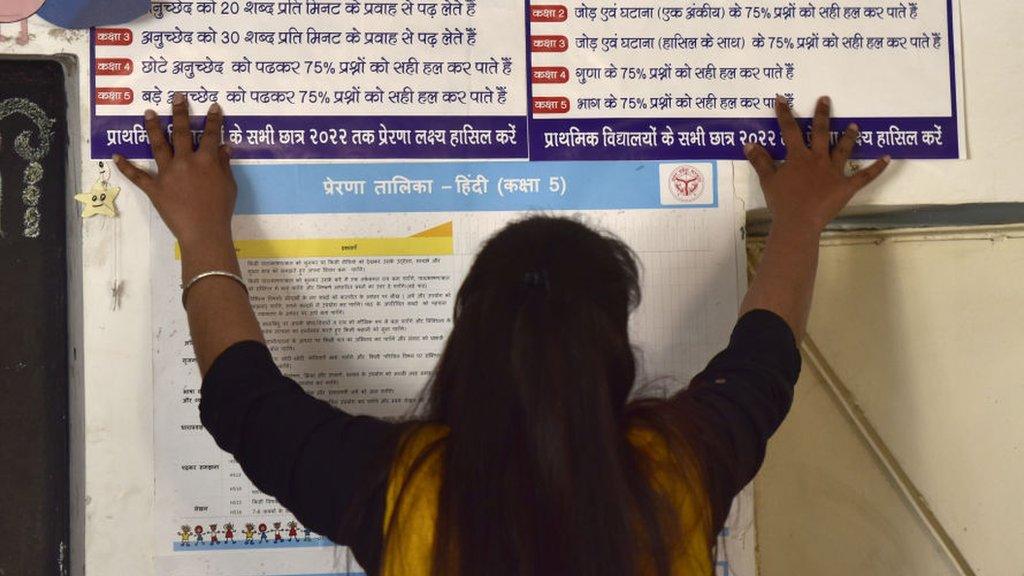Spain plans menstrual leave in new law for those with severe pain
- Published

Spain is planning to introduce medical leave for women who suffer from severe period pain, media reports suggest.
A draft bill says women could have three days of leave a month - extended to five in some circumstances.
But politicians warned that the draft - leaked to Spanish media outlets - was still being worked on.
If passed, it would be the first such legal entitlement in Europe. Only a handful of countries around the world have such legislation in place.
The Spanish legislation is part of a much wider reproductive health reform which will include changes to the country's abortion laws.
Media outlets who have seen portions of the law report that it is due to be presented to cabinet early next week.
Three-day sick leave for painful periods will be allowed with a doctor's note, the draft says, potentially extending to five on a temporary basis for particularly intense or incapacitating pain.
But it is not expected to apply to those who suffer mild discomfort.
It is part of a wider approach of treating menstruation as a health condition, El País reports, which also includes the abolishing of VAT on some hygiene products - the so-called "tampon tax" - and free hygiene products being made available at public centres such as schools and prisons.
The draft also includes extended paid maternity leave before childbirth and changes to abortion laws outlined earlier this year by Equality Minister Irene Montero.
That includes removing the requirement of aged 16 and 17 to have an abortion without the permission of their parents or guardians, which was introduced in 2015 by another government. It also eliminates a current three-day cooling-off period, and a requirement for abortion services to be provided in the public healthcare system.
But doctors in traditionally Roman Catholic Spain will still be able to sign up to a register of conscientious objectors, El País reports.
The proposed law will also include tighter rules around surrogacy, which is banned in Spain.
Kat has struggled with adenomyosis since she started her periods
- Published8 October 2020

- Published1 January 2021

- Published3 December 2016

- Published25 April 2021

- Published8 August 2021
